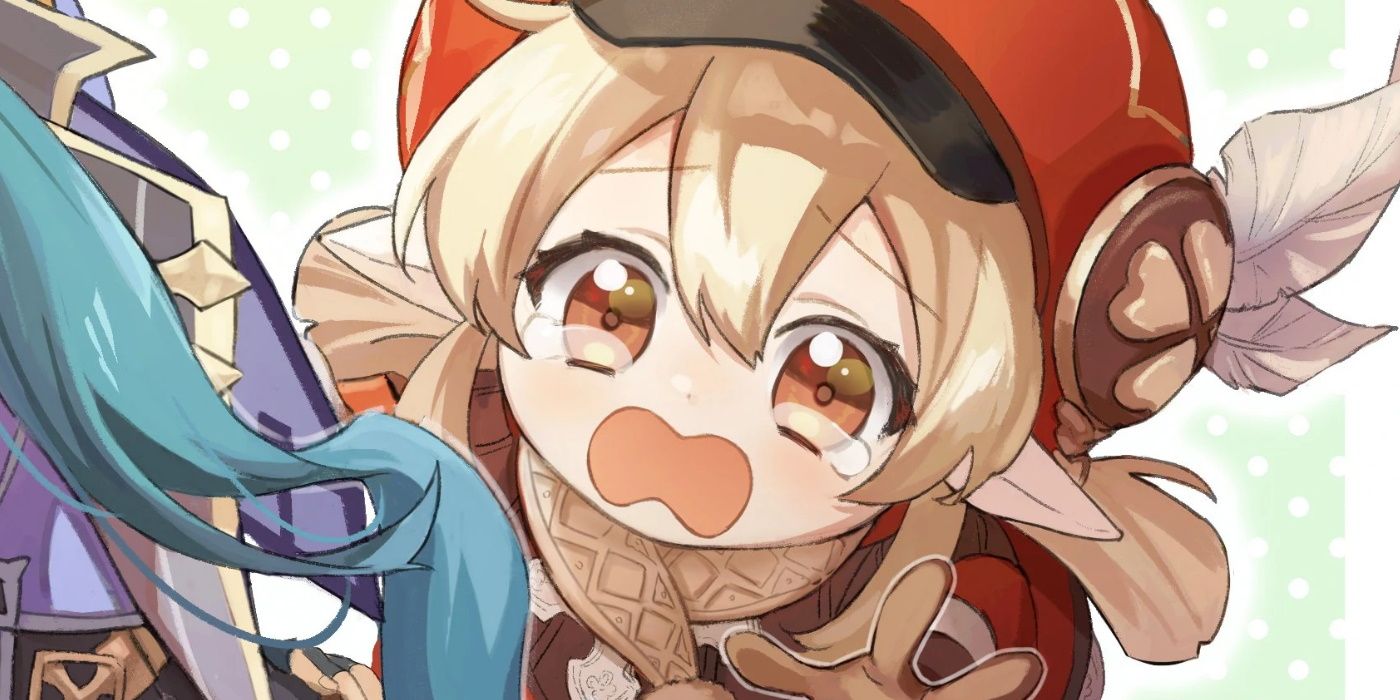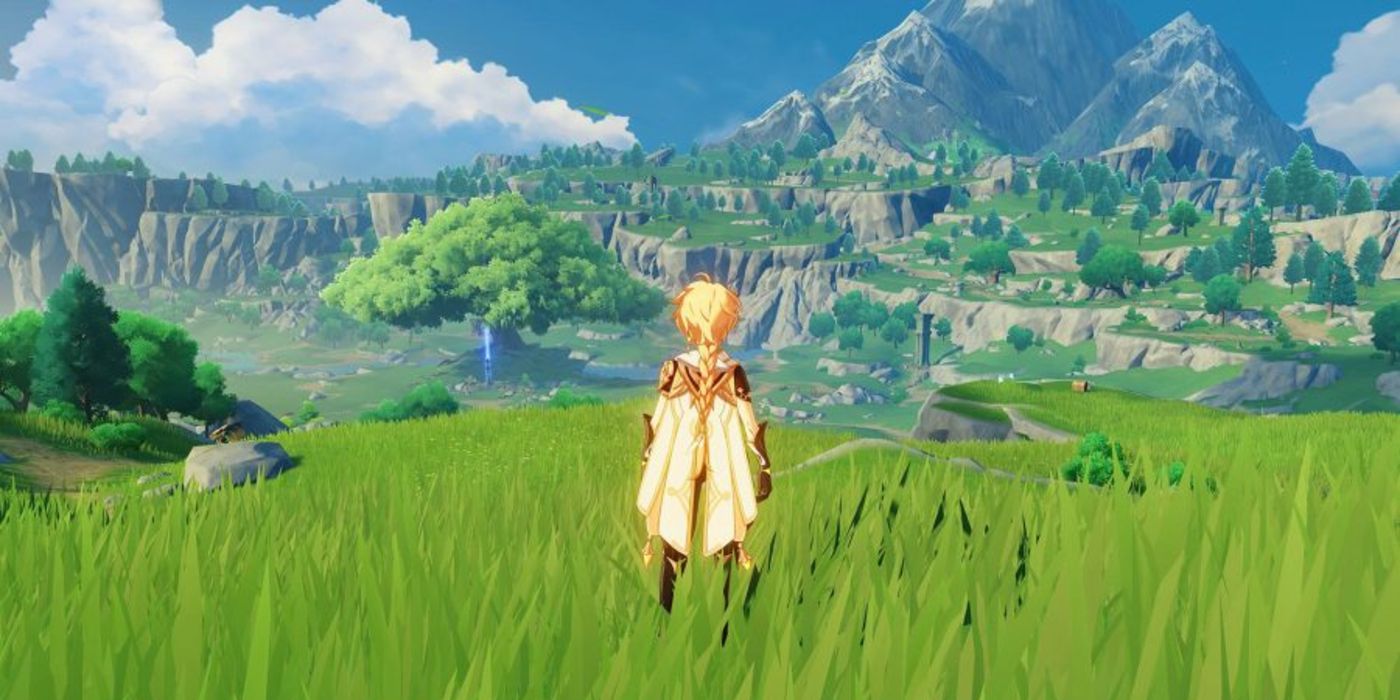
One could be forgiven for misjudging the narrative of Genshin Impact. Its brightly colored world, cute characters, and Breath of the Wild-influenced mechanics hint at a lighthearted experience. Or at the very least, a game where the good guys handsomely trounce evil and villages teem with carefree citizens. And while that is true to varying degrees, the game tempers its saccharine elements with notes of well-written sadness.
Death and bitter defeat pervade Genshin Impact's expansive fictional history. Cities and towns are filled with relatable problems and occasional moments of poignant tragedy. The central plot also has a dark edge. Even when the heroes manage to save the day, there is often loss and consequence.
In certain respects, sadness is Genshin's secret storytelling ingredient. It is a spice that is difficult to balance, as titles that over-rely upon it become relentlessly grim, and the story becomes something that must be endured. This is not to say that such stories are bad, or unenjoyable. Many such titles carry the sort of vital themes and messages that only sorrow can convey. But as a general rule, game writers and narrative designers seem to either use sadness sparingly, or to excess.
RELATED: 10 Genshin Impact Fan Theories We Hope Are True
Even more commonly, developers will reserve the game's entire emotional payload for the main cast of characters. Only heroes and their supporters are permitted to suffer tragic deaths, persistent frustration, and shocking betrayal. In many RPGs, NPCs are not characters, so much as interactive signposts, and the world they inhabit feels hollow as a result. Developers looking to tell stories that balance the glee of adventuring against the cost of conflict should take note of Genshin's example.

A recurrent commission in Mondstadt has the traveler fetch flowers for Albert, a bard mourning the loss of his daughter near the cathedral graveyard. The most affecting thing about this quest isn't the death of the daughter, but rather that Albert must continue to cope with it. In video games, the deaths of named characters is usually the focal point of tragedy, because those moments are abrupt and shocking, dense with implications for the rest of the story.
But in life, the aftermath and ongoing consequences of a death account for the bulk of sadness that surrounds it. Demonstrating that kind of ongoing struggle places the emphasis on the survivors, simultaneously characterizing the NPCs and the world they inhabit.
Unintentionally, these kind of ongoing tragedies also lend the game a hopeful note. Also in Mondstadt, sickly Anna throws coins into the promenade fountain by day, wishing that she will get better so she is no longer a burden on her family. But by night, her brother Anthony wades into the same fountain and collects the money people have thrown into it so he can afford medicine for Anna. Apart from its bittersweet irony, the scenario immediately establishes characters' identity by presenting players with their problems, coping mechanisms, and desired outcomes.

The old adage that "history is written by the victors" is true: accounts of past wars are penned in a way that erases or justifies the deaths of fallen heroes, while painting the defeated as deserving of their fates. Genshin Impact's lore, particularly the events surrounding the Archon War, makes a point of illustrating the cost of conflict.
In particular, the story of Havria — the benevolent salt goddess who was betrayed and slain by her people, only to unwillingly transform her subjects into piles of salt — stands out as an effective example of the horrors of war. By framing the narrative around Havria, a conflict that would be otherwise amorphous and vague suddenly becomes personal and poignant. There is no winner in that war. Only lingering consequences.
This writing philosophy extends to long-lived characters who have to bear the burden of these experiences. Xiao, for example, has watched all his comrades be driven to madness or death. Furthermore, he often speaks of the karmic debt his actions have accrued. Even though the enemies he butchers are described as evil, he still considers his actions atrocities and their weight bears down on him.
Fittingly, in Xiao's Lantern Rite quest, Paimon and Traveler's efforts to make him enjoy the festivities are met with mixed success; he eventually participates, but is never swept up in a convenient swell of holiday cheer. The very concept of a holiday is still strange to him, and the Traveler's sudden compassion is not a comfort so much as alienating and perplexing.
RELATED: All Rumored and Leaked Genshin Impact Characters
Again, this sadness serves to sweeten the heroes' moments of victory while simultaneously engendering hope in the player. The fact that happiness is not a given, the notion that it will not necessarily arrive even if players works very hard to make it happen, makes them more hopeful. Sadness sweetens Genshin Impact by contrast, but also by appealing to players' personal sense of hope. The game uses sadness as a way of establishing stakes, which makes it easier to invest in the world's characters.

The real magic of sadness, is that it implicitly begs for change. When gamers project themselves onto a heroic avatar, they seek heroism in the form of side quests. If a character is suffering, they aspire to rectify that situation. But if heroes can right every wrong and solve every problem, adversity is trivialized. Genshin solves this problem by giving NPCs problems that cannot necessarily be solved by swinging a sword or conjuring fire.
Sometimes the player can assist in these mundane problems, like cooking a specific dish for somebody hungry, or sweeping leaves with wind powers. What can be done about a deceased family member, or unrequited lover? Sometimes, players simply have to accept that life in Teyvat can be rough.
Limiting heroism establishes stakes. It also invests players in otherwise forgettable, lesser characters, as sadness kindles hope. Players find themselves wishing that Changchang will finally spend time with her overworked father. They are eager to see if those two Fatui pen pals will ever meet each other. They grow annoyed and impatient with obsessive stalkers, like Albert. None of those characters are central to the game's plot, or the fate of the world. But they are memorable, vulnerable, and real, which makes their world more meaningful.
Genshin Impact is available now for mobile devices, PC, PlayStation 4, and PlayStation 5.

